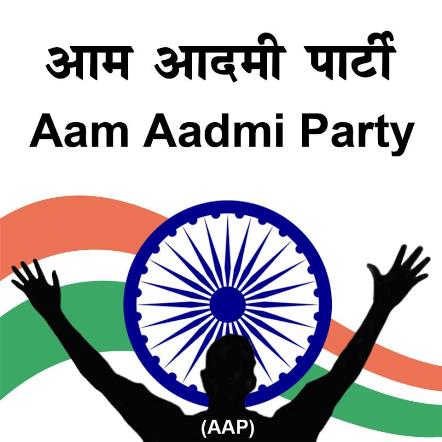Aam Aadmi Party boss and former Delhi chief minister Arvind Kejriwal is a god who is trying a build a brave new world where the common man and the presumably common woman would be the masters of their destiny. Since the aam aadmi and the aam aurat would decide on each and every aspect of life, they would happily live ever after once this world comes into being. But, unfortunately, everybody in the country, if not in the entire universe, is determined to stop the ushering in of this heaven on earth. From the corrupt Congress and the communal Bharatiya Janata Party to the unscrupulous industrialists (led by Mukesh Ambani’s Reliance Industries) is conspiring to badger the good, honest Kejriwal. Look at the way the two parties colluded with the country’s biggest private company and stopped it from bringing in the Jan Lokpal Bill. It is David versus Goliath—and there is many a Goliath to contend with. The AAP is up against a conspiracy of cosmic proportions.
Or so Kejriwal and his buddies would like us believe.
However, only the credulous can believe in such fairy tales. For many reasons. To begin with, Kejriwal does not offer any new solutions; in fact, the remedy he suggests—statism, in a greater measure than what the nation already suffers from—is much worse than such problems as corruption and poverty. It is well known that Nehruvian socialism has been responsible for low growth and underdevelopment. Yet, the AAP believes that more socialism is the cure for socialism, as evident from its subsidy-oriented and revenue-guzzling schemes that it wanted to implement in its short stay in office.
The party’s fight against corruption also is equally puerile. The pivot of this fight is the Jan Lokpal Bill, which is portrayed as the holy grail of good governance. The fact, however, is that governance is a process, not an event; and this process is a function of administrative, judicial, and police performance, political dynamics, and the economic policy framework. There can be no improvement in governance unless there are fundamental changes in the ecosystem in which it exists. Changes need to positively impact the entire body politic. As with the human body, which cannot shed flab by the use of some magic drugs or ‘revolutionary’ regimen, the body politic cannot be cured by revolutionary measures like Lokpal.
Kejriwal also tests our credulity by flaunting his own honesty, as if this virtue were the gold standard of governance and competence. Prime Minister Manmohan Singh is an honest man, but he has presided over the most corrupt regime after Independence. Defence Minister A.K. Antony is another honest man, but he has not been able to check graft in arms purchases. Jawaharlal Nehru was honest, but he was also responsible for much of what is wrong with governance, economy, and defence and foreign policies of the country. Outside India, Hitler was an honest man, but he set up a killing machine that slaughtered millions of innocent people; this was apart from the millions who died in World War II, which was the result of his expansionist plots. In short, honest in the chief political executive is not the sufficient condition for good governance. In fact, it is not even the necessary condition, for there are instances where dishonest politicians have provided decent administration.
As for Kejriwal’s supposed revelations about Mukesh Ambani’s machinations to bring down his government, and his incessant maligning of electricity distribution companies in the national Capital, there is nothing new. Much has already been written and said about Reliance’s influence in the corridors of power in Lutyens Delhi. What Kejriwal and his buddies refuse to learn is that the unwarranted power and influence of Reliance is the product of the ideology—socialism—that they want to embrace with even greater zeal. Reliance is the child of crony socialism, not crony capitalism. In fact, ‘crony capitalism’ is a contradiction in terms.
Further, it calls for considerable naivete to believe that only Kejriwal & Co is honest, competent, and solicitous, whereas the rest of the politicians are incompetent scoundrels with no concern for the people. Here is a leader who changed his position—official residence, dharna, throwing Sheila Dikshit behind bars, etc.—more than his detractors can remember. He harbors anti-national beliefs; his chums include traitors like Prashant Bhushan; his ministers behaved obnoxiously; his spokesmen use gutter language—and yet he is the knight in shining armor, striving to rescue the damsel in distress called democracy!
The AAP has been able to peddle its lies and fairy tales mainly because of the media’s fascination for the spectacular and opinion-makers’ reluctance to examine the party’s politics and economy. The backdrop—excessive venality and inefficiency of the Congress—also helped the self-appointed champions of political morality. But now the AAP’s self-righteousness has started to annoy even those persons from the middle class who were warming up to its apparently sincere efforts to cleanse the system. The party may not be over, but it has surely lost the sheen. No amount of righteous indignation and chicanery can restore the sheen.
Ravi Shanker Kapoor is a journalist and author. He upholds freedom of expression, individual liberty, free market, and open society. He is an uncompromising opponent of Islamism, communism, and other totalitarian ideologies. He is also a critic of intellectuals, as evident from his third book, How India’s Intellectuals Spread Lies (Vision Books).

